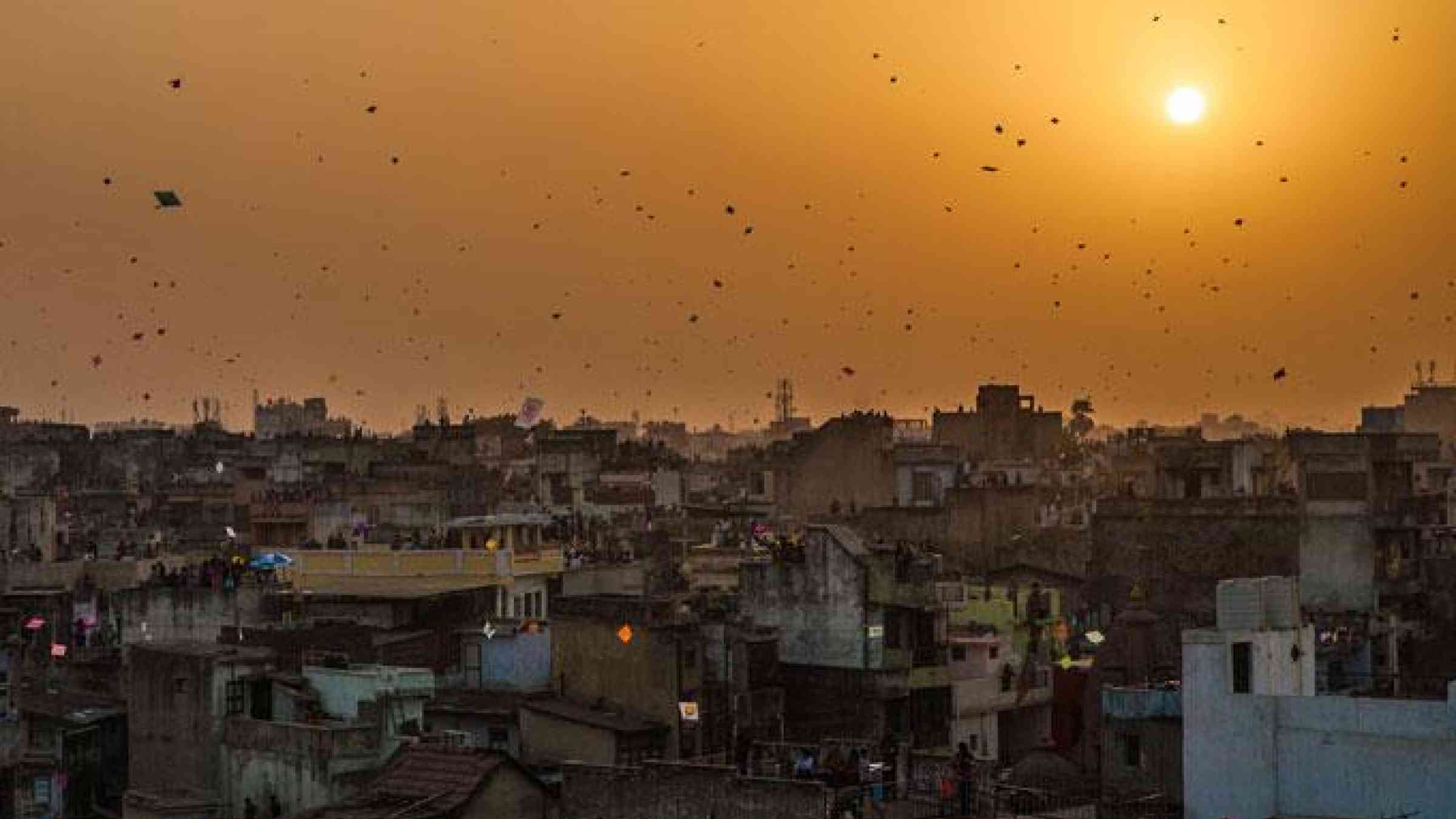Expanding heat resilient cities across India: Nagpur & Odisha adopt first regional plans

By Anjali Jaiswal
I'm in New Delhi today, where the searing impact of last year's tragic heat wave can still be seen. With temperatures soaring in late May 2015 and an overdue monsoon delaying relief, a roadway in the capitol city literally melted and more than 2,300 lives were lost across India. In contrast, the city of Ahmedabad - home to over 7 million people and India's first-ever heat-health preparedness plan - reported fewer than 20 heat-related deaths.
Cities and regions across the country are taking concrete action to better prepare and protect local communities from deadly heat, as climate change increases temperatures and the frequency and severity of heat waves. In 2013, Ahmedabad became the first city to implement a heat wave early warning system and preparedness plan in South Asia, offering an innovative approach to address rising temperatures. Now, leading governments in the Nagpur region of Maharashtra and Bhubaneswar coastal region of Odisha are stepping up to launch Heat Action Plans this week, demonstrating the first regional approaches to early warning systems and heat preparedness plans for extreme heat in India.
Our NRDC team released an issue brief today summarizing these heat action plans and will be attending and supporting the launch of the individual heat action plans in Ahmedabad, Nagpur and Bhubaneswar this week. The new regional heat action plans in Nagpur and Odisha, along with Ahmedabad's municipal heat action plan, were developed in partnership by city and state leaders, meteorological officials, public health organizations including the Public Health Foundation of India and Indian Institutes of Public Health in Gandhinagar and Bhubaneswar, international experts including University of Washington and Icahn School of Medicine at Mount Sinai and NRDC.
Ahmedabad's Heat Action Plan has been effective at increasing awareness of the dangers of heat waves and climate change, and has expanded capacity to warn and protect citizens during extreme heat events. Through raising heat-health awareness, boosting capacity among health professionals to recognize and treat heat illness, and issuing early heat alerts, the Ahmedabad's Heat Action Plan increases preparedness and resilience to extreme heat and ultimately saves lives.
Now in its fourth year of implementation, the 2016 Ahmedabad Heat Action Plan strengthens interventions to reach vulnerable populations based on a survey of recent heat-illness victims. Ahmedabad is also conducting the first scientific occupational study of the health impacts of heat and air pollution on traffic police officers in India this summer, based on a pilot heat study in 2015. Monitoring traffic constables' exposure to heat and air pollution exposure while working in some of the city's busiest intersections will help inform policy recommendations for the Ahmedabad City Police's Traffic Commissioner to better protect police officers.
Building on lessons learned from Ahmedabad's pilot plan, city and state officials in Nagpur and Odisha have crafted regional heat action plans, tailored to local conditions and community needs. In the heart of the Indian subcontinent, the city of Nagpur and neighboring cities Chandrapur, Gondia, Nanded and Jalgaon have devised heat action plans to be adopted ahead of the 2016 heat season.
On India's east coast, the Odisha regional plan will strengthen the integration of heat preparedness and a heat early warning system into its robust state-wide disaster management system. The excellent leadership exhibited by government officials and supporting organizations to develop and launch protective heat resilience plans within one year and with limited budgets shows the urgency, feasibility and cost effectiveness of directing efforts and resources to create similar heat preparedness plans across Indian cities and states.
The Government of India is also actively supporting broader heat resilience efforts. The national Indian Meteorological Department (IMD) has adapted how it forecasts temperatures and heat wave conditions, in addition to strengthening inter-agency communication. IMD now provides a 5-day forecast to more than 100 cities around India to increase cities' capacity to warn citizens and respond to impending heat waves. The central IMD in New Delhi is working closely with local IMD offices to ensure their forecasting tools can help advance these adaptation efforts.
Our City Resilience Toolkit: Response to Deadly Heat Waves and Preparing for Rising Temperatures enables other cities and states to shape their own heat preparedness plans. The City Resilience Toolkit - recently released in Paris at COP21 - includes a user-friendly "How-to-Manual," a powerful resource that lays out steps and best practices to develop new heat action plans, aiming to accelerate the development process.
This advance in climate adaptation efforts demonstrates that India is taking seriously its domestic commitments made at COP21. Through this progress, India is showing the world that, as we work together to fight climate change, we can take smart steps right now to shield millions of people from killer heat waves.
The upcoming events are:
- Friday, March 11: Launch Ahmedabad Heat Action Plan 2016 in Ahmedabad;
- Monday, March 14: Launch Odisha Regional Heat Action Plan 2016 in Bhubaneswar;
- Tuesday, March 15: Launch Nagpur Regional Heat Action Plan 2016 in Nagpur.